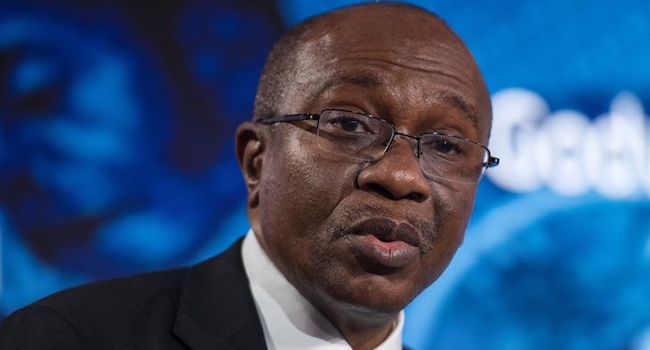THERE must be something that the occult manipulators called money ritualists see in this country that the rest of the society does not see. This is why cases of money ritualism and the sale of human parts continue to be reported almost on a daily basis even as security operatives keep arresting and prosecuting suspects. Last week, personnel of the Rapid Response Squad (RRS) of the Lagos State Police command arrested three suspects for alleged possession of suspected human tongues. According to the command’s spokesman, SP Benjamin Hundeyin, two of the suspects were apprehended on October 15 with human parts in a taxi during a routine stop-and-search on Otedola Bridge. He said: “Further investigations led the operatives to the apprehension of the third suspect from whom the parts were bought in Oyingbo Market, Lagos.” According to Hundeyin, an investigation is ongoing at the command’s headquarters, and the suspects will soon be arraigned in court if found culpable.
Such cases are legion. In February, the Ogun State Commissioner of Police, Abiodun Alamutu, revealed how his command arrested a certain prophet and a native doctor and their clients for involvement in a case of money ritual that led to the murder of a lady, Adijat Sulaimon. Before their arrest, some of the suspects had been demanding a refund of the sum they had paid to the native doctor, one Oluwo Mandela, since the concoction he prepared for them had been ineffective. In April, officers of the Kaduna State Police command swooped on a cemetery located in Dutsen-Abba ward, along the Zaria-Kaduna expressway, where they rounded up a gang of nine suspected ritualists who described themselves as members of the Neo Black Movement (NBM). A search of the vehicle the suspects had brought to the cemetery showed two locally made pistols, one Beretta pistol, two jack knives, two calabashes and a jerrycan filled with human blood. Questioned as to the source of the human blood in the jerrycan, the suspects confessed that it was the blood they had drawn from an aged man whom they had earlier butchered and whose body they had dismembered along the Jaji military cantonment in neighbouring Igabi Local Government Area (LGA). The victim’s vital body parts had been taken away by another gang which came from Kaduna, Kaduna State.
In May, personnel of the Niger State command of the Nigeria Security and Civil Defence Corps (NSCDC) arrested a syndicate which specialised in genital mutilation for rituals, gang-raping of minors, assault and other criminal activities in Pandogari town of Rafi Local Government Area of the state. In August, a 14-year-old boy, Malik Kareem, was allegedly beheaded by his three friends in the Olorisaoko community located in the Akinyele Local Government Area of Ibadan, Oyo State. Malik and his friends had approached a cleric, seeking wealth through ritualistic means. However, these friends had actually conspired with the cleric to offer him as “sacrifice” instead. When they arrived at the cleric’s place, Malik was strangled, then beheaded. Said a witness: “We found Malik’s lifeless body, decapitated and lying in a pool of blood.” Of course, the preoccupation with occult manipulations is not peculiarly Nigerian. In May this year, a Lusaka-based woman, Inness Banda, stunned the Matero Local Court in Zambia when she produced her red underwear which her husband had allegedly buried in their yard to bewitch her.
It is distressing that somewhere in Oyingbo market, Lagos, some people allegedly trade in human parts. Such people are not buying foodstuff or clothing, but vital organs taken from the bodies of victims who may or may not have been dead before such parts were harvested. Just who are the sellers and how do they get their supplies? Although many suspects have been arrested for digging up corpses with a view to collecting “needed” body parts, it is not unreasonable to assume that the major source of supply for those involved in this dark trade are innocent Nigerians abducted and murdered in the most brutal fashion and then cut up like animals. It is terribly agonising to imagine the spectre of innocent people on their way to work, school, market or a place of religious worship being abducted and murdered in cold blood by a band of bloodthirsty criminals intent or trading in their body parts. That is an extremely gory spectacle that ought to be forestalled with every resource available to the Nigerian State. Those involved in that dark trade ought to be apprehended and sentenced to death without further ado. They do not deserve a space in any society.
As we have said countless times already, there are no ritualists on the Forbes’ rich list. If anyone wishes to know what people like Elon Musk, Jeff Besos, Larry Ellison or Mark Zuckerberg sell, all they need is a simple internet search. The world’s wealthiest individuals are in the positions they occupy because they saw certain critical human needs and designed ways of meeting them. If people are buying and driving Musk’s cybertrucks, for instance, it is because they feel they need them, and get a certain thrill riding them. If someone comes along and offers something better, people will simply abandon those trucks and go after the new thing on offer. That is how life works. Over the years, Nigerians are yet to see a moneybag whose self-confessed trade is money ritualism or the trade in human parts, yet innocent people keep getting killed in the country because certain people believe that the human body can be a certain kind of mint.
Read Also: Niger gov reaffirms commitment to run open-door policy
To tackle this deadly trade, the Federal Government, which in February 2020 promised to launch a national sensitisation campaign against the growing scourge of money rituals, must work with the state governments to stamp out the scourge. The then Minister of Information and Culture, Alhaji Lai Mohammed, said there was “great concern across the country over the rising cases of ritual murders by unscrupulous people, most of them very young, who are seeking to get rich at all costs.” He added: “For those who may still be in doubt, ritual killings have assumed a worrisome dimension in recent years. According to an NGO, Foundation for Partnership Initiatives in the Niger Delta (PIND), 150 women and girls were killed for ritual purposes between January 2018 and December 2021.” It is time for action.
Regarding the present case, the police must get to the root of the matter. They must unravel the brains behind the bloody business, which is apparently not listed on the Nigerian Stock Exchange.

 2 hours ago
15
2 hours ago
15








